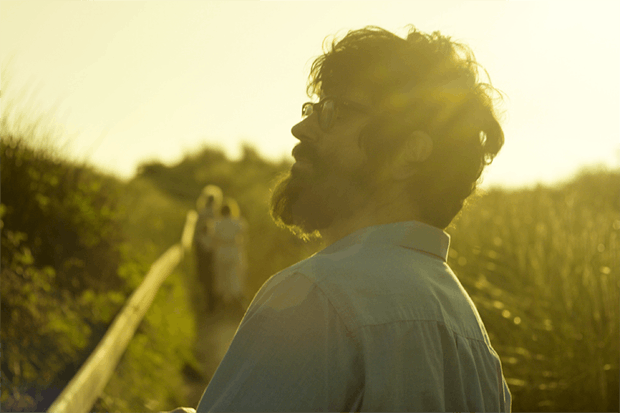Perhaps you have sometimes wondered: how would you even begin to make a film about going blind and being blind and what that means? How, when the subject is so profoundly and inherently uncinematic? Or maybe it’s other thoughts that keep you awake at night — such as when we all finally receive our £350 million a week plus free puppy, where will we be expected to keep them? — but even if that’s so you’ll still find Notes on Blindness to be a singular achievement, as well as a truly wonderful one.
This is based on the audio recordings of John Hull, the academic, writer and theologian who was Emeritus Professor of Religious Education at the University of Birmingham. After years of sight problems — he suffered cataracts from the age of 13 followed by a series of retinal detachments — he finally went fully blind in 1983, as his second child was born. (He would have five children, in all.) For the next three years, he kept a diary of his interior world, as recorded on to clunky C90 cassette tapes, which formed the basis of his own book, Touching the Rock.
The film, put together and directed by Pete Middleton and James Spinney, is a dramatisation of those tapes, employing actors to lip-synch John’s thoughts and those of his family (whom you can sometimes hear on the cassettes) alongside stagings of his vivid dreams and his experiences of a world he can no longer see. (The sound design is so extraordinary I absolutely promise you that, if nothing else, you will never listen to rain in quite the same way again; never.)
Dan Renton Skinner plays John while Simone Kirby plays his wife, Marilyn, but the lip-synching is so naturalistic, as is the filming of their scenes — all grainy, dusty 1980s browns — it will never occur to you that they aren’t John and Marilyn. (In fact, I later looked up photographs of John and Marilyn and was surprised to find they weren’t Dan Renton Skinner and Simone Kirby.) Like the tapes, which were not recorded in one sitting, but as and when, the film jumps between observations but still manages to form a kind of narrative as John journeys from denial, where he behaves like a sighted person who cannot see (he persists in wearing his glasses; he will not attend a mobility course at a rehabilitation centre), through to acceptance that is not just acceptance. The state of ‘deep blindness’, as he will ultimately call it, offers ‘a new sense of life, creativity and identity’. Or, to put it another way: ‘One must recreate one’s life or be destroyed.’
John’s voice, which is melancholic with a slight Australian lilt (he was born in Australia), is our companion throughout, as is his mind, which never goes dark, but is instead extraordinarily illuminated. He ponders and explores, holds every incident this way, then that way, examining it for meaning and truth. There’s the banality of practicalities, like the fact that he wants to read about anthropology, sociology, theology but the only audio books available are detective fiction and romances. ‘How do blind people read big books?’ he asks. ‘They don’t,’ he is told. He makes you think about things you almost certainly would not think about otherwise. What does it feel like to have a brain thirsty for visual information that is not forthcoming? What does it feel like to find you can no longer remember what your wife looks like, or your children? What does it do to your faith? (His blindness, he concludes, is a gift from God: ‘Not a gift that I wanted but a gift nonetheless. The question is not why I have it, but what I am going to do with it.’) And how might it affect a marriage?
Marilyn is fearful of losing John to a world she cannot enter. ‘What am I meant to do?’ she asks. ‘Scratch my eyes out?’ He dreams of a flooded supermarket, with waves crashing down the aisles, during which he and Marilyn cannot connect. But the love keeps coming back, because it never went anywhere. We see the two dancing cheek to cheek to ‘Dedicated To The One I Love’, which will make you well up. This is not just about blindness, as it’s also about home, family, and the goodbye routine John employs with his son when dropping him at school. (More welling up.)
John, who died last year, at 80, was intimately involved with the film, but it’s scant on biographical details, and I’d have liked more. Why wasn’t he close to his father? What brought him to theology in the first instance? But I’m just being greedy, I think. So back to our first question: how do you make something profoundly and inherently uncinematic cinematic? This is how.
Got something to add? Join the discussion and comment below.
Get 10 issues for just $10
Subscribe to The Spectator Australia today for the next 10 magazine issues, plus full online access, for just $10.














Comments
Don't miss out
Join the conversation with other Spectator Australia readers. Subscribe to leave a comment.
SUBSCRIBEAlready a subscriber? Log in